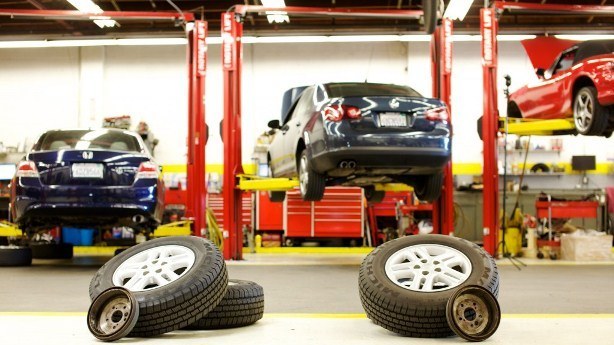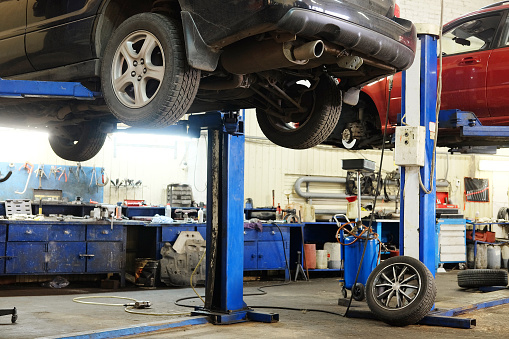All Categories
Featured

Your automobile's engine is the heart of your car, and keeping it in top condition is crucial for optimum efficiency and longevity. Regular engine tune-ups are a fantastic way to preserve your auto's health, enhance fuel effectiveness, and avoid pricey repairs down the road. Whether you're an auto enthusiast or a person that simply intends to maintain their lorry running smoothly, these engine tune-up ideas will certainly assist you get the most out of your cars and truck.
- Replace Flicker Plugs. Spark plugs play a vital function in starting your engine and ensuring smooth burning. Gradually, ignition system can come to be unclean or broken, causing misfires, decreased gas efficiency, and rough idling.
During an engine tune-up, evaluate and replace your ignition system if essential. Most cars need new trigger plugs every 30,000 to 100,000 miles, relying on the kind. Routinely replacing spark plugs makes sure appropriate ignition and optimal engine performance.
- Examine and Clean the Air Filter. The air filter avoids dirt, dust, and debris from entering your engine. A stopped up or unclean air filter restricts air flow, creating your engine to function tougher and melt more fuel.
Examine your air filter during a tune-up and replace it if it's unclean. In dusty settings or locations with hefty air pollution, you might need to change the air filter extra frequently. A clean air filter can enhance fuel performance and extend the life of your engine.
- Inspect and Replace Belts and Pipes. Belts and tubes are essential for different engine features, such as powering the alternator, water pump, and a/c system. In time, these components can crack, fray, or break, possibly causing breakdowns.
During a tune-up, check belts and pipes for signs of wear and change them if required. Changing these parts proactively can save you from costly repairs and avoid unforeseen failings.
- Tidy the Gas System. Your gas system, including the fuel injectors and gas lines, can build up dust and carbon down payments with time, decreasing engine performance. Cleaning up the fuel system throughout a tune-up aids boost efficiency and fuel economic situation.
You can use a gas system cleaner or have a specialist mechanic execute a much more complete cleaning. This action is specifically vital for older lorries or automobiles that frequently drive in stop-and-go traffic.
- Check the Battery and Billing System. A healthy and balanced battery is crucial for starting your engine and powering electric elements. During a tune-up, inspect the battery terminals for deterioration and ensure the connections are tight.
Examine the battery's voltage and replace it if it shows indicators of weak point. Additionally, have the generator and billing system checked to guarantee your battery remains billed throughout procedure.
- Change the Engine Oil and Oil Filter. Oil changes are a fundamental component of engine upkeep. Engine oil lubes moving components, lowers friction, and aids manage engine temperature level. With time, oil becomes contaminated and sheds its effectiveness.
During a tune-up, replace the engine oil and oil filter to maintain your engine running smoothly. Follow your car's manufacturer suggestions for oil kind and change periods.
- Inspect the Air Conditioning System. The air conditioning system stops your engine from overheating. With time, coolant can deteriorate or come to be polluted, reducing its effectiveness.
Check the coolant degree and problem throughout a tune-up, and flush and replace it if needed. Examine the radiator, water pump, and tubes for leakages or damages. A well-maintained cooling system assists your engine operate at the best temperature level and avoids overheating.
- Evaluate the Ignition System. A faulty ignition system can create starting problems and reduced engine efficiency. Throughout a tune-up, examine the ignition coils, supplier cap, and blades (if relevant) Change any type of parts that show indicators of wear or damage to ensure smooth and reliable engine operation.
- Pay Attention for Unusual Sounds. Throughout a tune-up, seize the day to pay attention for any type of uncommon engine noises, such as knocking, ticking, or hissing. These sounds can show underlying problems, such as valve problems, loosened components, or exhaust leaks. Dealing with these problems early can stop more considerable damage.
- Use Quality Parts and Fluids. When executing an engine tune-up, always utilize top quality parts and fluids that fulfill your lorry manufacturer's requirements. Inexpensive or incorrect elements can endanger your engine's performance and integrity.
Final Thought: A Well-Tuned Engine is Trick to Durability. Routine engine tune-ups are necessary for preserving your vehicle's performance, performance, and reliability. By replacing worn parts, cleansing important systems, and attending to potential issues, you can maintain your engine running smoothly for many years to find. Whether you're doing it on your own or relying upon a relied on mechanic, spending in tune-ups is a clever method to safeguard your car and delight in a much safer, smoother adventure.
Latest Posts
Find Out Reduce Expenses on Car Maintenance with Montclare Auto Repair’s Special Deals
Discover Cut Costs on Car Maintenance with Montclare Auto Repair’s Limited-Time Deals
Discover Special Auto Repair Specials in Chicago at Montclare Auto Repair
More
Latest Posts
Find Out Reduce Expenses on Car Maintenance with Montclare Auto Repair’s Special Deals
Discover Cut Costs on Car Maintenance with Montclare Auto Repair’s Limited-Time Deals
Discover Special Auto Repair Specials in Chicago at Montclare Auto Repair
